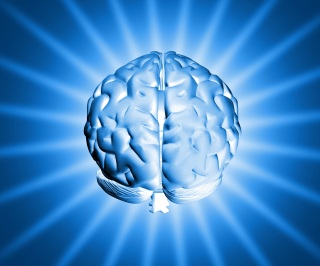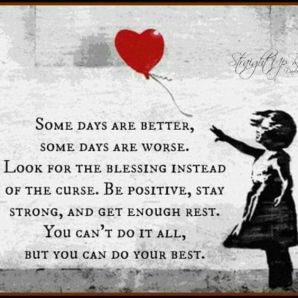 Since I laid it all out there in my last blog post about recent events in this dementia journey I want to share that I am coming out of the bad spell. It’s not at all back to “my normal” but it is better. Better for me may not be what you think of as better but for now I can’t describe it.
Since I laid it all out there in my last blog post about recent events in this dementia journey I want to share that I am coming out of the bad spell. It’s not at all back to “my normal” but it is better. Better for me may not be what you think of as better but for now I can’t describe it.
The “nice” thing about not remembering is that I don’t remember the things from last week. I had to look up the blog and read it to know what happened. Weird.

Over time I’ve started writing blog posts about what’s happening in my life with dementia. I write a bit and then don’t publish it. They are just pieces I’ve written and are not connected but all relate to dementia so I’m putting them here with dividers and hopefully something in one of them will help someone out there. Happy Saturday ya’ll!
 2018 How I live my life is determined pretty much by how this dementia monster is behaving in my life! It’s been 7 years since I first had neuropsychological testing in November 2011 and was sent on to see Dr. Shamsniam a neurologist in Metairie, who did several medical brain tests. His medical conclusion supported the neuropsychological testing done by Dr. Susan Andrews. They diagnosed Vascular dementia from having several TIAs (Transient Ischemic Attach – Mini Strokes) that damaged various parts of my brain. Frontotemporal dementia (FTD) from having a shrunken brain in the Frontal Lobe and Temporal Lobes. Other lobes are also shrunk but the majority of the shrinking is in the Frontal and Temporal lobes.
2018 How I live my life is determined pretty much by how this dementia monster is behaving in my life! It’s been 7 years since I first had neuropsychological testing in November 2011 and was sent on to see Dr. Shamsniam a neurologist in Metairie, who did several medical brain tests. His medical conclusion supported the neuropsychological testing done by Dr. Susan Andrews. They diagnosed Vascular dementia from having several TIAs (Transient Ischemic Attach – Mini Strokes) that damaged various parts of my brain. Frontotemporal dementia (FTD) from having a shrunken brain in the Frontal Lobe and Temporal Lobes. Other lobes are also shrunk but the majority of the shrinking is in the Frontal and Temporal lobes.
I honestly still have a lot of times that I think “This is all garbage. I am as okay as the next person.” I am able to think that way from time to time because of the life Roy and I live. I am very thankful that my dementia journey has gone slowly and that I am not what most people think of looking like when you have dementia.
I am thankful that God has given me this time as still being mostly Rosalyn. I know God is in control of everything and my journey is in His hands.
When an older person is diagnosed with dementia they probably had it for years before then. Their pathway from diagnosis to death is typically short.
This has taken a while to write because I change from time to time. Some days I am really mean, mostly to Roy. I was mean and rude recently to our new RV space renter and I had to apologize later when I realized what I had done.
 2019 I just listened to a video by the writer of Still Alice. in it she points out that the more knowledge and experiences someone with dementia has the lesser degree dementia will affect you leaving your abilities in tact longer. the information there helps explain why i am still able to function as well as I can. she mentioned that cross word puzzles don’t help because youa re retrieving existing knowledge. learning something new is what help. our travels and also living in the RV definitely helped me learn more. this is exciting to me because it explains a lot.
2019 I just listened to a video by the writer of Still Alice. in it she points out that the more knowledge and experiences someone with dementia has the lesser degree dementia will affect you leaving your abilities in tact longer. the information there helps explain why i am still able to function as well as I can. she mentioned that cross word puzzles don’t help because youa re retrieving existing knowledge. learning something new is what help. our travels and also living in the RV definitely helped me learn more. this is exciting to me because it explains a lot.
This is the video:
http://www.alzheimersweekly.com/2017/04/alzheimers-isnt-destiny.html

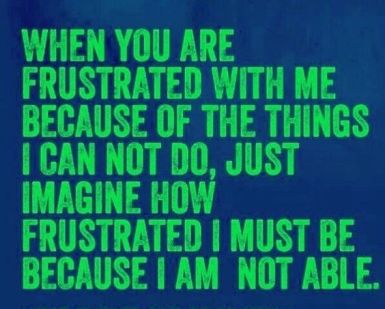 2019 I haven’t written a lot recently about my shrinking brain filled with holes. In the past when I had a day or even a few hours of conversation, activity, socializing and simple interaction with others, the rate my brain had to run to keep up just wore me out. A good night’s sleep or several hours of trying to not think helped me recover to a better place.
2019 I haven’t written a lot recently about my shrinking brain filled with holes. In the past when I had a day or even a few hours of conversation, activity, socializing and simple interaction with others, the rate my brain had to run to keep up just wore me out. A good night’s sleep or several hours of trying to not think helped me recover to a better place.
The last couple of weeks have involved repeated conversation, activity, socializing and lots of thinking. No longer has getting a good nights sleep helped and I certainly have not had several hours of not thinking. It just didn’t stop. Things outside of our control, good things, bad things. I am not complaining, it’s just life but I’ve been waking up with brain mush.
I hear it from others and read it as well. You need to keep your mind working, get out, see people, socialize, keep busy. Really??!! That might be accurate at some time down the dementia road and it was true for me before recently. Now any one of those things tires my brain out so much. You can’t imagine how much I wish I could be the social person I use to be. If someone asked me to do something I’d say yes and I’d be dependable about it. Let me spend an afternoon visiting with just about anyone or any group of people and I thrived.
While I still can I continue to try to be an advocate for dementia awareness. Today I want to share some of the things that go on sometime in my daily life, living with dementia.
Sometimes, now, I am in a situation where I don’t remember the name of someone I am talking to. I’ve gotten quite good at this now and can hold a conversation without ever saying a name, but it has taken practice. I can also hold a conversation that is more chit chat than substance which tends to mask what’s going on inside my brain. I noticed that in mama when she would smile and give a seemingly normal response which was actually just a cover-up response when she didn’t really know what we meant. When people ask how I am doing I always say fine, who really wants to know that can’t remember one thing that happened that morning or the day before????
I spend some time of the day on the computer on Facebook, writing my blog, googling information for caring for my garden. This is getting harder and harder each day.
When I get ready for bed. I take my night time medication, so many tablets to take in the course of a day… I crawl into bed and am at last in my “happy zone.” Not that my day is not filled with happy moments, just that when I’m in my room alone there is nothing required of me, no one is talking to me wanting a response. I read both some portion of a book and also my Bible. I love that our church is reading the Bible together in our own time. I find that when I read in that quiet time (that may last hours) I retain a bit more of it than when I read during the day when there is activity or just someone else around.

 One day during 2018 This week on Thursday when I woke up I felt like my brain was in a fog.
One day during 2018 This week on Thursday when I woke up I felt like my brain was in a fog.
I usually check my phone for emails, Fox News, Facebook before I get out of bed. None of it was making sense to me.
When I got up and tried to write one of my blogs my brain didn’t know how to do certain parts of putting it together. My writing didn’t make any sense. I went from one blog to the other trying to get something started. It didn’t work. I started crying because even though these things have happened before they all haven’t happened before on the same day.
I tried to paint rocks and couldn’t come up with anything about how to do that. I couldn’t remember how to make my oatmeal breakfast. I knew what to use but not how to put it together. That was a brief maybe 5 minutes and then it came to me.
My balance isn’t good occasionally but Thursday it was difficult to walk straight a lot of the time.
Roy asked me a question that I should know the answer and the answer was nowhere to be found.
Late in the day things got better and I went to sleep really early hoping that would help. I typically now sleep at least 12 hours every night. When I’m in bed reading and then going to sleep is the time I am at peace. There is nothing to figure out or remember. No one to try to say the right words to. When I got up this morning I felt much better.
I know that those of us with some form of dementia sharing on here and on Facebook groups help those who are the caregivers understand. It is very saddening to me when I read someone who is a caregiver wanting their loved one to change back to how they were, or they think their loved one is being stubborn, or honery. They may just be expressing feelings which are fine but when they actually think their loved one has any control over how they are or that their loved one doesn’t wake up every day and throughout every day wish they could be normal again, please please try to approach every obstacle knowing that your loved one would do anything to be normal again. Being mad at their loved ones doesn’t help anything.

Well, that’s it for pieces of blogs that I started but never posted. I am dealing with an abscessed tooth and a possible dry socket along with the brain fun! I’ve been on amoxicillin for two weeks and Tylenol/ibuprofen for the pain. If not better by Tuesday I have an appointment to go back to the dentist and have a root canal. Imagine being crazy and in pain plus an abscess!
Life is Good! God Good! All the time God is Good!
It might not seem like it should be, but this was difficult to put together. It’s done and it makes me relieved to finally get these little pieces all in one place and out there! I really do have to be doing better to put this together. I will blog as long as I can, I will share my love for our Lord and what he’s done in my life while I still can, I will read and learn as long as I can, paint rocks as long as I can and garden as long as I can. I love these things and they bring me joy! I thank God for that joy and all the joy He allows me to have in my life!
Ya’ll have a great weekend. 



 September 1, 2018 – I wrote this three years ago, seems like yesterday. My blood sugar and A1C are significantly better than they were back then. My blood pressure (without medicine) is now under control. Not sure about recent cholesterol since I stopped taking medicine for that. I have an appointment with Dr.Valdes to go get current blood testing and check all of my medicines to determine what I should still be taking.
September 1, 2018 – I wrote this three years ago, seems like yesterday. My blood sugar and A1C are significantly better than they were back then. My blood pressure (without medicine) is now under control. Not sure about recent cholesterol since I stopped taking medicine for that. I have an appointment with Dr.Valdes to go get current blood testing and check all of my medicines to determine what I should still be taking.
 are ranked in brain healthiness so pick what you love and eat those!!
are ranked in brain healthiness so pick what you love and eat those!!
 eat them everyday. Always keep frozen ones available for when the fresh run out. Adding frozen blueberries to hot oatmeal is delicious!!! Haven’t tried freeze dried but I’ve had blueberries covered in yogurt which are delicious.
eat them everyday. Always keep frozen ones available for when the fresh run out. Adding frozen blueberries to hot oatmeal is delicious!!! Haven’t tried freeze dried but I’ve had blueberries covered in yogurt which are delicious. Yogurt – a cup a day – I buy low fat Dannon vanilla yogurt because of the low fat, it tastes good and it’s fairly cheap. I buy two large containers each week and that gives me a cup a day to add to smoothies or fruit bowls. I’ve learned that smoothies are best for if you don’t have time to sit down and eat a bowl of fruit but the bowl of fruit is the better of both choices for you. I daily make either a smoothie or a bowl of three types of fresh fruit, granola, flax seed and chia seeds mixed together. You don’t taste the flax or chia seeds but they are very good for you. You can buy small pouches of them for under $1 each that last for a couple of weeks.
Yogurt – a cup a day – I buy low fat Dannon vanilla yogurt because of the low fat, it tastes good and it’s fairly cheap. I buy two large containers each week and that gives me a cup a day to add to smoothies or fruit bowls. I’ve learned that smoothies are best for if you don’t have time to sit down and eat a bowl of fruit but the bowl of fruit is the better of both choices for you. I daily make either a smoothie or a bowl of three types of fresh fruit, granola, flax seed and chia seeds mixed together. You don’t taste the flax or chia seeds but they are very good for you. You can buy small pouches of them for under $1 each that last for a couple of weeks.
 oatmeal and whole grain breads.ark Leafy Vegetables –
oatmeal and whole grain breads.ark Leafy Vegetables –


 Click on the links below to go there!
Click on the links below to go there!
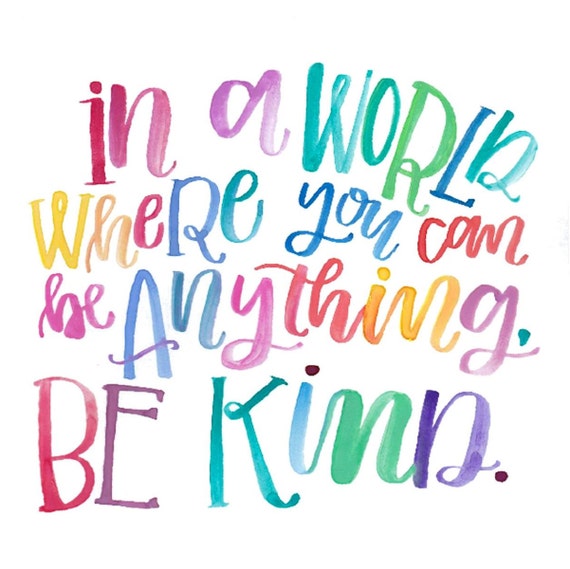

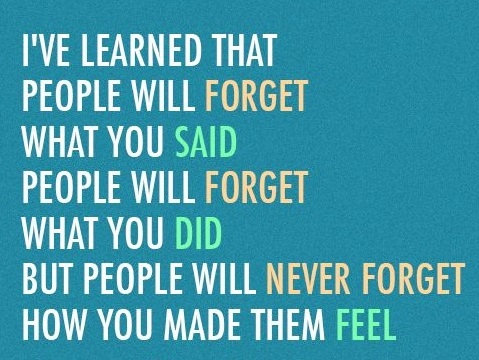
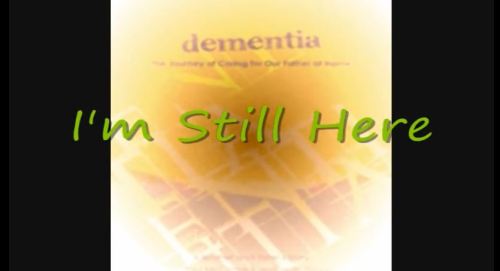



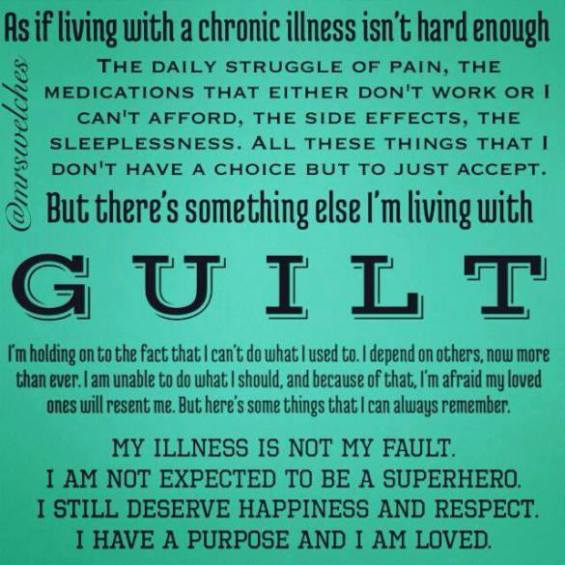


 One stressful event can kill brain cells
One stressful event can kill brain cells 


